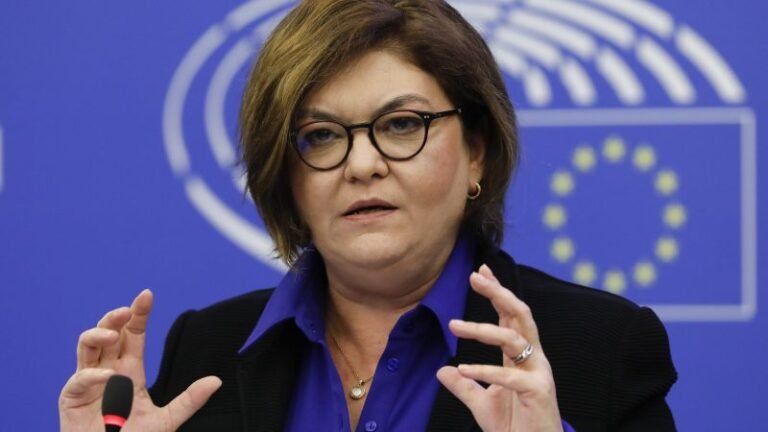Hydrogen has had a busy year, concluding at European Hydrogen Week in December with the relaunch of the EU public-private partnership and EU Transport Commissioner Adina Valian clarifying her vision for hydrogen-based transport in the EU.
Hydrogen is expected to play an important role in decarbonizing hard-to-mitigate sectors such as steel, chemicals and transportation. European Union Estimates 10-24% of energy use could depend on hydrogen in 2050.
Although electric vehicles are expected to dominate the private vehicle market, hydrogen is still expected to play a major role in decarbonizing heavy road transport.
The use of hydrogen in transportation via fuel cells, which convert hydrogen into electricity, has long been an ambition of the European Union.
To achieve the EU’s targets on decarbonising transport, Adina Valian, EU Transport Commissioner, explained during a keynote speech that “hydrogen refueling stations must be available at least every 150 kilometers along the Trans-European Transport Network (TEN-T).” for our cars by 2030.” On December 1st.
“This will create a sufficiently dense network of hydrogen refueling stations to ensure adequate cross-border EU connectivity and support the 60,000 hydrogen trucks we envision seeing on EU roads by 2030,” she added.
The TEN-T network is a European Union project to build a system of roads, railways, airports and water infrastructure.
The 60,000 hydrogen trucks reflect the number introduced in 2020 Stady Commissioned by the EU public-private partnership, the Fuel Cell and Hydrogen Joint Project (FCH JU), which said fuel cells were “a very promising zero-emission power generation solution for the heavy trucking industry”.
The study concluded that fuel cell hydrogen (FCH) trucks could become cost competitive by 2027, if hydrogen drops to €6/kg. It also described the “high operational flexibility and relatively short refueling time” of hydrogen trucks.
However, a supportive legislative framework will be crucial in making the transportation market accept hydrogen trucks.
Without the EU’s groundbreaking ‘Fit for 55’ climate legislation package, there will be just 3,000 hydrogen trucks on European roads by 2030, a Commission official told EURACTIV.
The official explained that with current proposals to reach the EU’s climate ambitions, this number is expected to rise to 60,000.
Cost question
In the study scenario, “17% of new trucks sold in 2030” will run on hydrogen provided two main criteria are met: selling hydrogen for less than €6 per kilogram and “a strong path to reduce the cost of the technology”.
According to the study, 17% of new sales will translate into approximately 60,000 hydrogen-powered trucks, assuming costs continue to fall in line with expectations.
Commission President Ursula von der Leyen, speaking at Hydrogen Week on 29 November, said that in 2030 the cost of green hydrogen could reach €1.8 per kilogram. “This is within reach,” she added.
The costs of the technology could be on a promising path after years of research jointly funded by the European Union and industry.
In addition, the application of hydrogen fuel cells in long-distance vehicles or buses has “reached a sufficient level of maturity,” Clean Hydrogen Partnership representatives told EURACTIV.
Likewise, A Coalition Major car manufacturers, including Daimler, Honda and Hyundai, have committed to deploying 100,000 fuel cell trucks by 2030 to support “the decarbonisation of the European transport sector”.
For the alliance, which brings together the entire value chain, the ability of hydrogen trucks to meet “the operational requirements of heavy-duty road transport in terms of range, refueling time and payload capacity” while being low-emission is crucial.
public private partnership
The ambitious statements made by von der Leyen and Valian were accompanied by the launch of the successor to FCH JU, with a budget of 2 billion euros.
The third edition of the EU-industry cooperation has been renamed the “Clean Hydrogen Partnership” and aims to “produce clean hydrogen at a price of 1.5 to 3 euros per kg” for use in industry and transport.
“The Clean Hydrogen Partnership is built on more than a decade of successful research and innovation in Europe, and is now ready to contribute to Europe’s green development,” said Bart Bibwick, Executive Director of FCH JU.
“It’s a great result for the entire community,” he added.
(Editing by Frédéric Simon)







